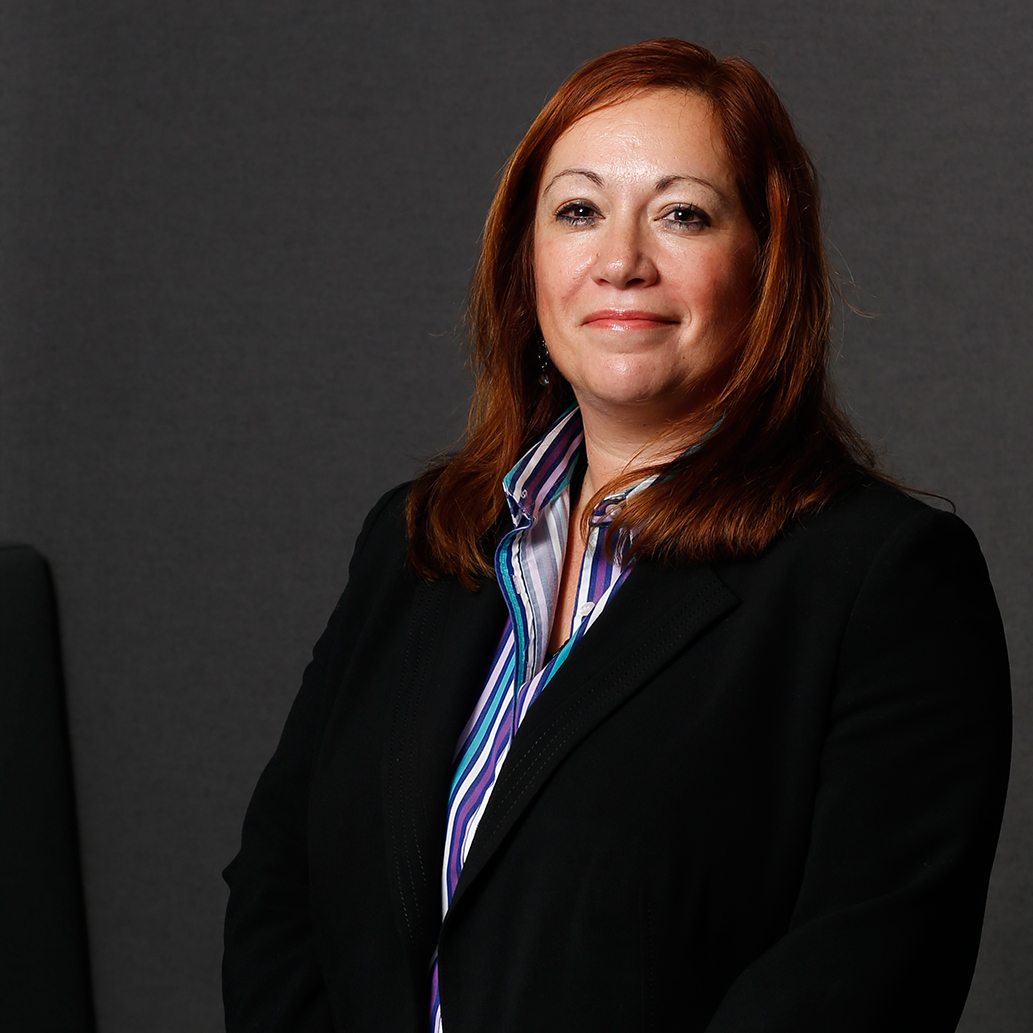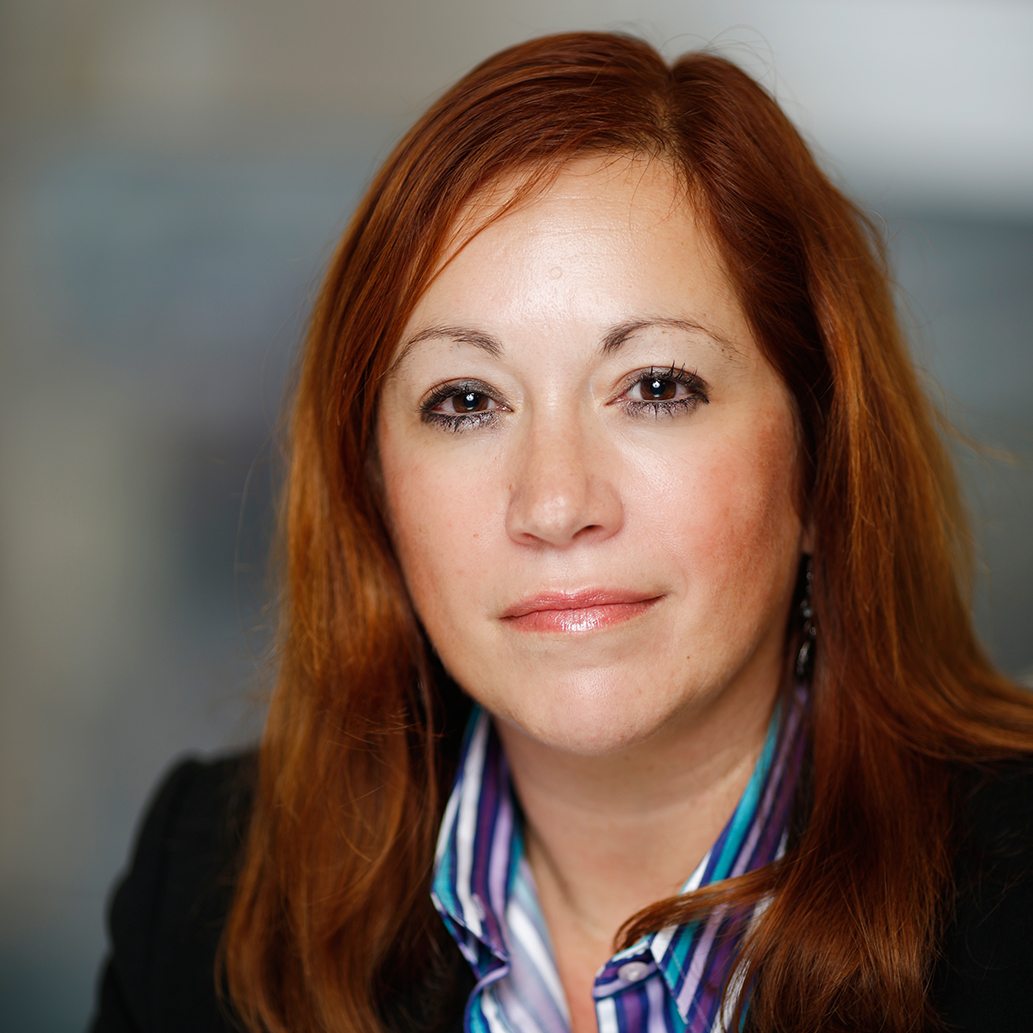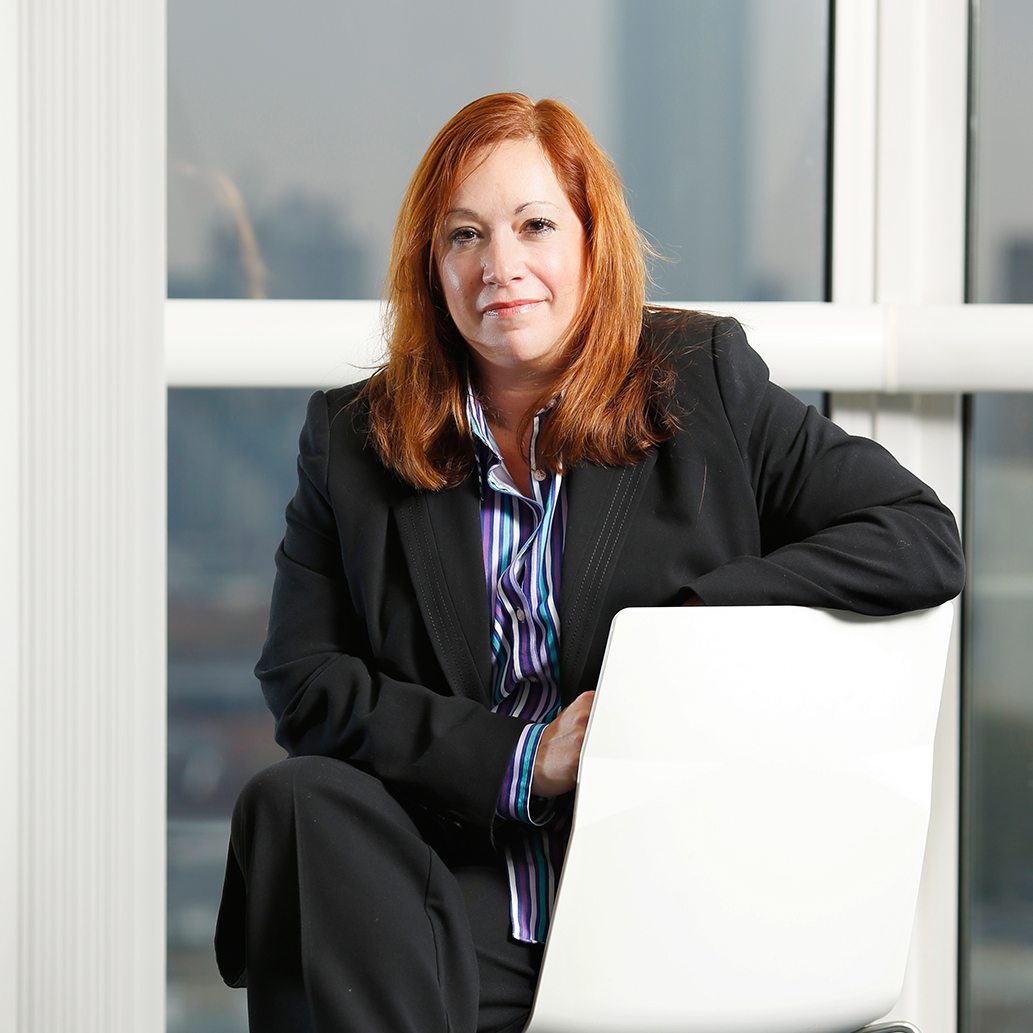
I read Modern Languages and European studies, including spending time in France during my studies. When I returned, I knew I wanted to work in a people-centred roll and I was attracted to a Personnel Management training scheme at British Rail, based in Cardiff. After nine months on the scheme, I took my first role in employee relations. This was a great introduction to the world of HR and I felt really passionate about this role, given the level of change and working with the trade unions. I wanted to gain broad generalist HR experience, so I then took an opportunity at InterCity as an Employment Development Manager, this was prior to rail privatisation. I was keen to gain experience in a company that was initially fasttracked for privatisation, so joined Thameslink as an Employee Relations Policy Manager.

The agenda was all about developing the policies and strategies for the future. As it happened, a decision was taken that Thameslink would no longer be one of the first privatised franchises, so I chose to make a move to a different organisation that was already going through privatisation, which would provide me with some greater career progression and development. So I joined an Infrastructure Maintenance company, (EIMC) based in Derby and a key contractor to Railtrack Plc. providing engineering maintenance. This was a complete change moving into the engineering sector and my key focus here was to design and implement management development solutions for an emerging, commercially-focused organisation.
Having spent ten years in the rail industry, I decided I should experience a different business sector altogether. Then came a really big change when I joined Burger King UK, clearly this was a very fast moving commercially-driven business, and a very small HR function. This was challenging as I was covering all of the company’s restaurants across England, which were all undergoing huge change and growth, and the HR function needed to respond quickly and proactively, in order to keep up and provide the level of service such development required. Developing line managers was a key part of this role along with coaching and resourcing given the turnover levels. Talking about timing, during my spell at Burger King, I also had my daughter, and within six months of returning from maternity leave, an opportunity at Eurostar presented itself and I thought, amongst many other things, “hey, here’s an opportunity to use my French”! From a career perspective it was the point that it really sank in that HR was my destiny and here I progressed all the way to HR Director. During that time I reshaped the HR team and reduced our costs. I worked on building leadership and management capability in addition to bringing in high quality people across the business in all areas. There were a number of changes in working practices required in that time so a good proportion of my time was spent working with the trade unions.
All in all, Eurostar was a fantastic four years, until I was head-hunted by a new train company, Northern Rail, and relocated to York as HR and Change Director. Here I led the development of the People and Change strategy, to create a one company culture from two previously separate franchises. This was another brilliant opportunity, a new franchise in the rail sector. This was a role that would call on all my experience so far, and I knew that I would have to dig deep to motivate and engage a workforce which, at the point of my joining, was disjointed and demotivated. Northern Rail was the largest train operating company, in terms of employees, and it also had a brand new leadership exec team. But despite the challenges of personal development, this was going to prove to be one of the best periods of my career. One of the challenges was that people at Northern Rail really didn’t know what HR could achieve. We created our vision and values and Business strategy/plan, as an Exec team with relentless focus on operational reliability and customer service. Our people and Change Strategy then supported this. I delivered a huge amount of improvements in the business in all areas and, from a People perspective, moved our organisation to being one company with an emerging one culture. HR was truly at the heart of this change, the glue which was sticking the business together, and for the last year I took the opportunity to be an Operational Director for one of the business areas where I then became HR’s customer. This presented a great opportunity to gain operational experience and deliver some improvements in key areas. During that year we drove absence down from seven percent to four percent, in an area that was prone to high absence. We also delivered an operational reliability target of 90 percent for the first time. After this success, I needed a greater challenge and I was then lured down to London Underground, and accepted the post of Director of HR in 2008.

First thoughts were, this was a huge organisation, going through massive amounts of change, and a lot of it needs to be HR-driven, by a function that had been under-represented and with no HR Director for some time. Firstly, I had to get used to the scale and put together an HR team with the knowledge and skills to embark on this challenge. As I joined, Metronet was being integrated back into London Underground from the private sector, so one of my first jobs was to manage the integration from a People perspective and at the same time, build an HR function which was fit for purpose. It was clear that the business needed clarity and alignment of the People strategy to the business strategy.
There was recognition that more change was needed and, as HR across Transport for London reported into five MDs, the big challenge of course was cohesion and struggling to keep things consistent, so I centralised the whole HR function in January 2012. There was a huge raft of change that had to be implemented with the priority being for HR to start working in partnership with the business areas and other stakeholders including the trades unions. It was more about HR being at the heart of the operation and defining a practical and pragmatic people strategy and plan that was flexible to differing business requirements.

It would be easy for the unions to focus people’s attentions on that. It’s typically change that is the challenge. I think people can respond positively to change if they feel a part of what is delivering new and better ways of operating, and that there is clear two-way communication all the way through. In all of the companies I have worked, it’s about delivering a modern service for today and tomorrow and for the customer. In many ways, rail privatisation has heightened awareness, the commercial element gives a more aware and pro-active working culture, and yes, as you say, technology can be an inevitable game changer. Increasingly these days’ people are immersed in technology, in and outside of work, and so acceptance that ways of operating are changing is being more readily received. Of course, it’s a cliche, but it is true, success with change management is all about getting buy-in from top to bottom and HR is very pivotal in enabling this.
There is no alternative to what we are trying to do than to get out and engage and involve people. However, you can’t just press a button and hope it happens, so my current team is located out in the business areas, to ensure we are always visible, communicating and connecting with employees and supporting management teams. It’s about making sure the messages are clear and understood and the real acid test is when things do improve, the sea-change is palpable. The clarity of communication is the windpipe of engagement. We track how we’re doing through our employee engagement survey and that’s the feedback we get, that we need to do more! We have made some real improvements in this area in TfL, but it’s just the start of our journey. At my time in Northern, we significantly improved our engagement score on communications over a two year period. This speaks volumes to me, particularly with the backdrop of such broadscale organisational and operational change. It’s important the leadership team gets a ground floor view too, ensuring the MD, myself and the HR team are out in the business raising awareness, getting feedback and monitoring what’s going on. It is a continuous journey.
That’s a big question that could have me talking all day. If I focus on change management, going back to my time at Northern Rail, change management was all target-driven, a sort of ABC tick box. Of course there was lots of engagement activity, but it was all focused on the basics. I think HR is at another level now and that’s partly due to it’s perceived position in businesses, aligned and central to the operation, and this maturity, plus much better technology and communication, has made it a better facilitator of relationships, for example with line management. A lot of models have changed, the HR science is more sophisticated, but you know, fundamentally it’s about people and generally people want to do the right thing. I think HR in some cases has got mired in theory and theoretical models. I think where HR truly shows value is rolling up its sleeves, providing practical and pragmatic advice and support and being at the heart of the operation.
It’s about what you do, of course, but equally it’s about how you do it. You have to be confident in your messages and act at the correct speed, be consistent and never stop communicating. If there’s a whiff of uncertainty or a lack of clarity, you immediately lose the room and the lack of faith creeps in. You have to be prepared and geared up to be able to anticipate any issues. You talk about history and yes I think part of the “them and us” mentality has caused problems previously. My approach has been to try and build relationships quickly and this helps when you are in a position of change and subsequently, having some challenging discussions. It is about finding common ground and gaining mutual respect. When Metronet was integrated into London Underground, within the first three months of my joining LU, we had to work our way through a large reduction of jobs. We would not have got through that without having regular and open dialogue and trying to find the right solutions to the various issues. Investing the time to do this is key.
Put simply, we have to keep making improvements in all areas, and we’re a rapidly growing business. It’s an inevitable, organic development, because London is going to continue to grow. Front of mind? Well from a day-to-day operational point of view we are of course wholly committed to increasing reliability and capacity, all underpinned by delivering great customer service. We know London is growing and we need to have the capability for handling increased capacity, so we are investing hugely in upgrading our network, stations and trains. Everyone, I hope, will have noticed the visibility of staff on platforms and clear, up-to-date announcements about services and people’s onward journeys. And of course, in 2015 we will be moving to a 24-hour underground service on five lines at weekends.
In the past yes, but recently, increasingly more has been brought in-house, so we are bucking a major trend. Why? Because we’ve demonstrated we can do things better and more efficiently, and it is proving to be a valuable asset for the organisation to have skills and expertise on tap.
We’re always in the top 100 employers for graduates and have many schemes and apprenticeships right across the organisation in just about every sector. Some 4000 apprentices have joined during my time at TfL, and we work in partnership with our supply chain and industry partners to ensure our apprentices get the best possible start to their careers. But you are right, the sector we’re in has a significant challenge with scarce skills in some areas. We are proactively planning for our future workforce, building talent pipelines and training and developing our current staff. For example, we’re a co-sponsor of a new technology college for 14 to 18 year olds, Royal Greenwich UTC, and that is proving to be of great mutual benefit. We also host regular Classroom to Boardroom sessions with our partner schools, where pupils are given real TfL engineering challenges and present their solutions back to a nominated board. The best pupils are given access to work experience and apprenticeships with TfL. There is little alternative than to look to the future and take on challenges, proactively and head on. With regard to people’s perceptions as an employer, it’s not something you can bluff, it’s what you do every day and it’s about being consistently best in class when it comes to training and providing opportunity. Our attrition is surprisingly low, it’s not unusual to hear of people joining for six months and staying for 25 years! TfL has a lot of strings to its bow; we provide excellent progression, diversity of roles and change in career paths and re-skilling.
Well having centralised into one HR function, it’s now all about fine-tuning and becoming more agile, flexible and quick to react. One big change in January 2014 will be the creation of a team dedicated to supporting change wherever that may be occurring, and that’s a big assist in ensuring compliance and timely delivery. For my part, it’s a massive advantage having a seat at the senior leadership table. It’s been a constant push from day one, but also to have the influence and respect to set the pace of change has been essential, you know the balance between having the basics in place to operate, mindful that there are limitations to how much can be taken on board and processed at any one time. Part of this enablement has been informing and up-skilling line managers, and although there’s no room for complacency, taking a pragmatic view and being realistic is absolutely key to authenticity.
It is part intuition and from the feedback on the ground. We have made real inroads and we have communicated positive commitments to our employees. We have adopted a new and innovative way of communicating with our employees through our management teams. We all know organisational cultures take time to develop and evolve, it’s about the stepping stones to get there and adapting along the way. Every journey matters.
We’re on a journey of consultation with the unions and we have made it clear, there will be no compulsory redundancies. So at the moment, it is about having that dialogue with the unions and speaking to employees directly about their concerns. The 24 hour night Tube we have announced will be creating jobs and our proposed changes are all about ensuring our customers are at the heart of what we do.
We have learnt a lot from the London 2012 Games which was extremely successful for us. One of our key successes was our Travel Ambassadors who were employees for our specialist functions and we have tried to build on that going forward for key events when the capital is busy. The employees get to interact with customers and really understand the business more. Other countries are also keen to learn from our success and we are a role model for how we ran the transport network during the games. As we strive to continuously improve and change, the job will never be a maintenance one and that’s what excites me. We’ve done a lot to bring the team together as one team, but its very much work-in-progress… every journey we take matters. For further information: www.tfl.gov.uk
University of GlasgowSalary: £49,559 to £57,422 per annum (Grade 8)
University of Greenwich – People Directorate – People OperationsSalary: £31,637 to £37,174 per annum, plus £5400 London weighting pa
University of Wales, Trinity Saint David – Human ResourcesSalary: £33,966 to £38,205 per annum. Grade 6
University of Strathclyde – Professional Services (Continuous Improvement, Estates, Finance, HR) – Human Resources DirectorateSalary: £37,174 to £45,413